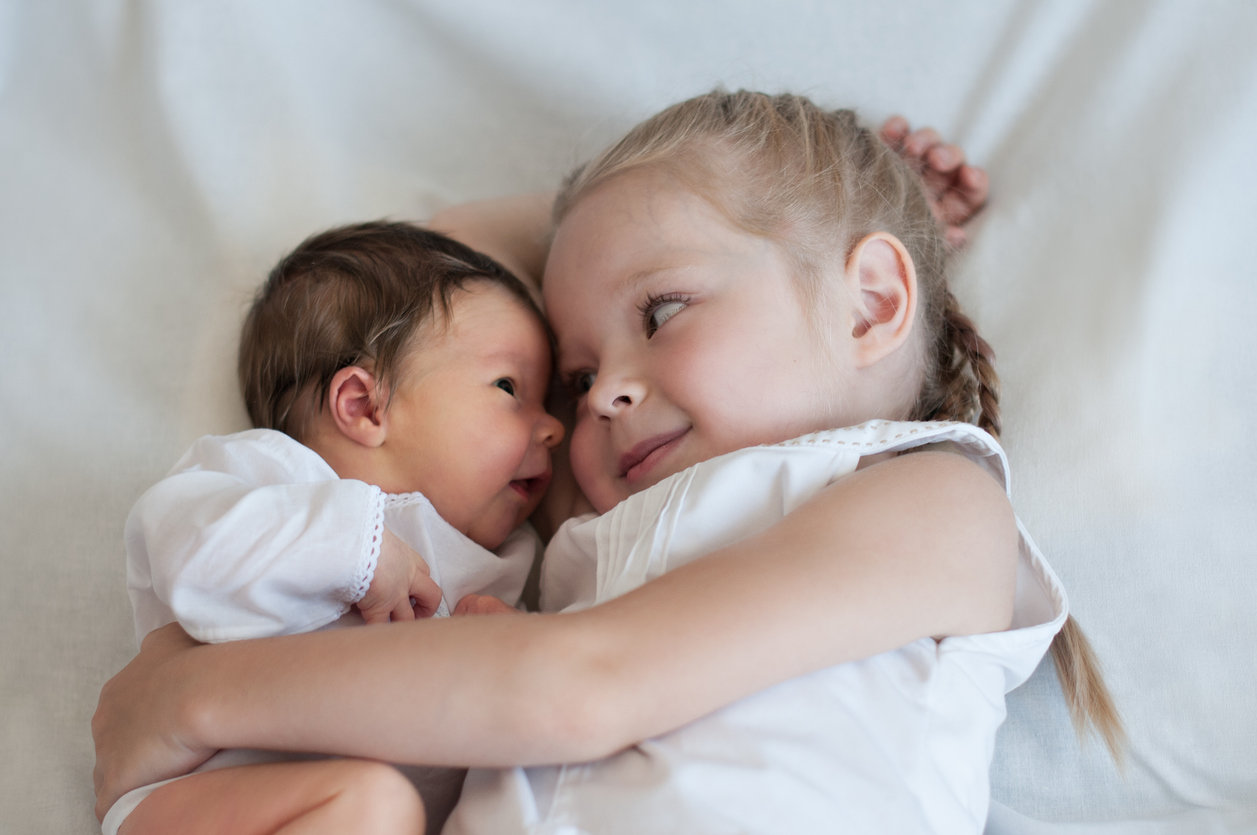
When many people decide to have a second child, they worry about how their first child will adjust and whether or not there will be enough love to go around. I did the same when I found out I was pregnant with my youngest in 2014. But what I learned after having him — and what's now been confirmed by new research — is that a shortage of love has never been the issue with second children. Instead, it's that having a second child leads to a shortage of time and energy.
Data from the Household, Labour and Income Dynamics in Australia Survey shows that second children take a major toll on parents' mental health.
The study followed roughly 20,000 Australians for up to 16 years to research what happens to parents’ time pressure and mental health as their first-born children age and new siblings arrive. What they found is that the time constraints of caring for two children causes mental health to decline sharply, particularly in mothers, although fathers are affected too. The findings state:
"We found that mothers’ mental health improves with first children immediately following birth and remains steady over the next few years. But, with the second child, mothers’ mental health sharply declines and remains low.
The reason: second children intensify mothers’ feelings of time pressure. We showed that if mothers did not have such intense time pressures following second children, their mental health would actually improve with motherhood. Fathers get a mental health boost with their first child, but also see their mental health decline with the second child. But, unlike mothers, fathers’ mental health plateaus over time."
As the mother of a 4- and 7-year old, I can report that this is 100 percent true -- for me, at least.
The funny thing is, you would think that second children are easier. By the time you have a second kid, you've already been through the whole childbirth and newborn phase. You're a seasoned parent. But even ninja-like parental skills can't overcome the time pressures parents feel.
As a mom of two, I am busy all the time.

Not only do I work full time, but my children also are on wildly different school schedules, with one in pre-k and the other in first grade. Someone always needs a bath or a snack or a field trip permission slip signed. They take turns getting out of bed every 15 minutes at night to ask for water, back rubs, trips to the bathroom, extra stories, and hunts for monsters under the bed. My husband and I often sit back during milestone moments, such as birthdays or New Year's, and say to each other, "You know what? I think this has been the hardest year yet."
And then it just gets harder.
This strain is not the second child's fault, of course.
I can't imagine our little family without my son. He's the cuddler. He's his sister's closest friend in the entire world. He makes our family complete. But the constantly surprising thing about parenting is how you can love someone so much but still also feel exhausted, stressed, anxious, and overwhelmed. Love has never been the issue with baby number two. I love him more than I ever thought possible. But I can't magically add seven more hours into the day to take some of the pressure off of me or my husband, and that's kind of a problem.
The researchers pointed out that stress can have detrimental effects, including cardiovascular disease and other ailments.
"We are not arguing that children lead to heart disease — we have our Western diets to thank for that — but rather pose the question of whether the birth of first and second children has short- or long-term effects on Australian parents’ time pressure and, because of that, mental health," they wrote.
So, what's the fix? They say fathers need to play a more active role in childrearing and societal changes need to be made, such as more flexible work schedules and better childcare options. In other words, parents — whether they're in Australia, the US, or somewhere else — need help!
And according to them, we need it sooner than ever. "The effects of children on mothers’ time pressure is not short-lived, but rather is a chronic stress that slowly deteriorates their health," they wrote. "As such, maternal time pressure must become a top health priority for practitioners and policymakers."




